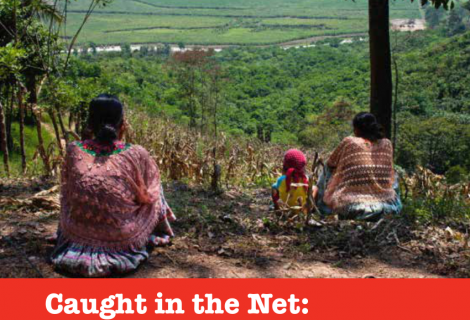
Caught in the Net: How “net-zero emissions” will delay real climate action and drive land grabs.
United Nations (UN) climate negotiations must urgently and equitably address climate change, and lead to rapid cuts in emissions of greenhouse gases if our planet is to have any hope of stabilising global temperatures. Growing talk among politicians, business leaders, and even some NGOs of achieving “net-zero emissions” could therefore sound promising. But while “net-zero emissions” may sound similar to “zero emissions”, the two concepts actually mean very different things, with entirely different consequences.
Adding “net” to a goal of “zero emissions” may prove to be a trap that delays real climate action, and which could drive devastating land grabs and hunger through the large-scale use of land, biofuels and biomass to absorb rising carbon dioxide emissions. Instead of requiring real emissions cuts, “net” counting could allow for
business-as-usual greenhouse gas emissions, offset by massive-scale mitigation through the land sector.
The Intergovernmental Panel on Climate Change (IPCC), outlines scenarios requiring between 500 million and 6 billion hectares of land in order to implement this dangerous offsetting approach. Developing countries are likely to be the target of this new focus on land use for mitigation.
Many vulnerable communities in the South have already lost their land and seen their food security undermined in the expanding drive for biofuel production. Climate negotiations must learn the lessons of the biofuel land grab, and avoid any so-called climate solutions that threaten the very communities that the UNFCCC is supposed to help. Land rights and food sovereignty must not be sacrificed in the name of climate change mitigation.
As the world looks to forge a new way forward on combatting climate change, the rights of indigenous peoples, women and smallholder farmers must be protected. Climate negotiations must therefore avoid the trap of “net-zero.”